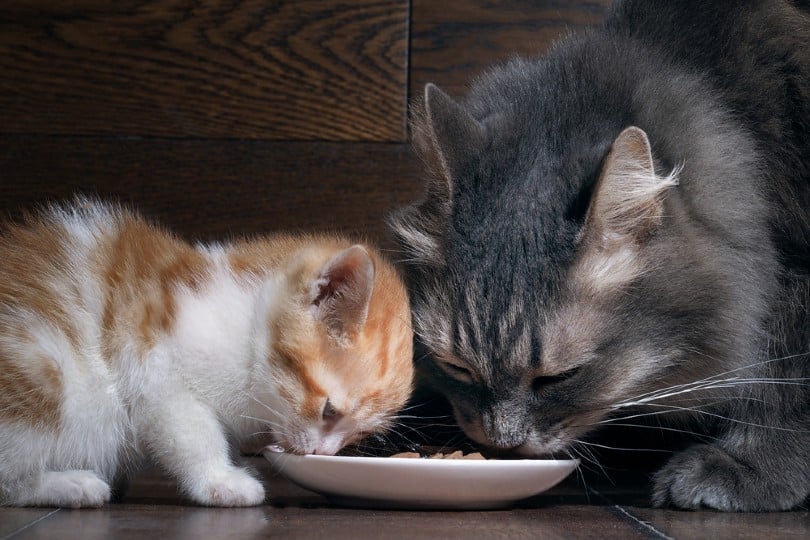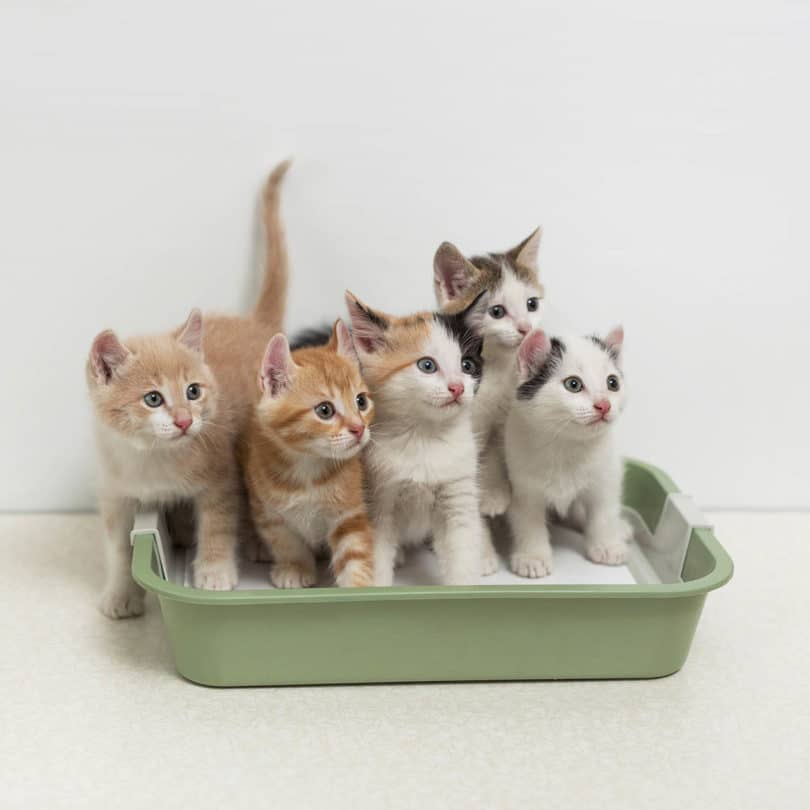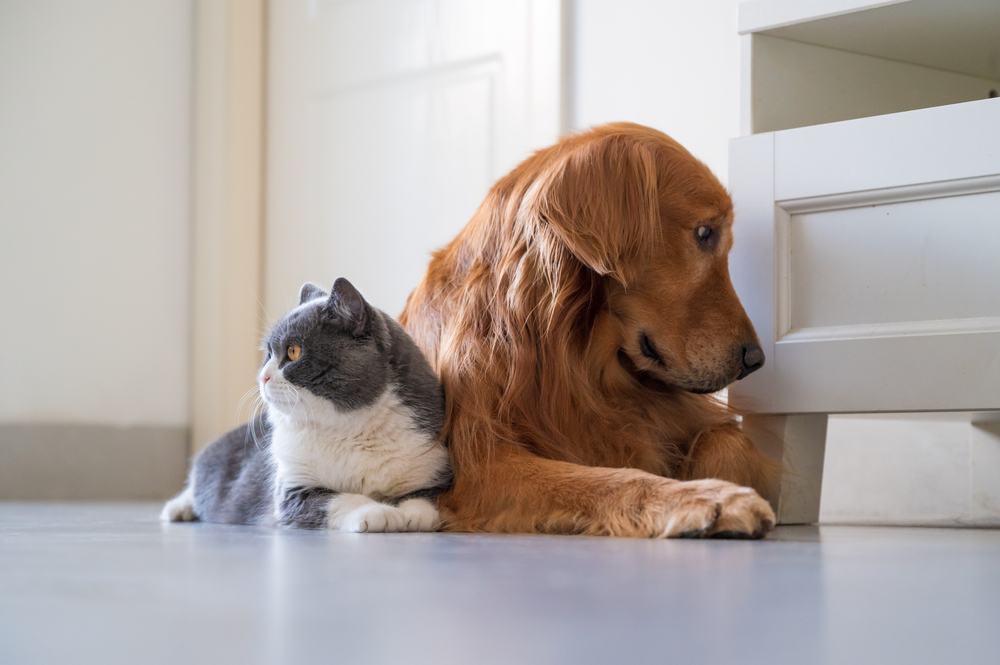It’s not a stretch to say that feline owners become cat-obsessed. There’s a reason why we have the trope of the crazy old cat lady. Once a cat owner starts to build relationships with their cats and sees their cats building relationships together, it’s hard to resist the temptation to keep growing your pack.
As cats multiply, two become three, eventually leading to four, five, and so on. But is that too many? How many cats should you keep in a house? Is it even legal to keep several cats? As a general answer, it will all depend on your financial situation, your living conditions, and legal state regulations. Let’s dive in and find answers to these important questions.

Rising Costs of Cat Care
Before you start adding new felines to your household, there are some things you ought to consider. Each additional cat is going to add to your overall expenses. It may not be difficult to afford one or even two cats. But once you get to cats four, five, and higher, the costs start to rise.
We’re not just talking about financial costs either, but they will increase, too. Don’t forget about the emotional cost or the cost of space. Each cat will be taking up more space and more of your time, and you’ll also need to be able to provide for them emotionally.
Of course, financial costs are also something to consider. Each cat will increase the cost of health care. If you have pet insurance, costs will rise with each additional pet. You’ll also drastically increase the cost of feeding your pets with each cat added to the family. All of the additions will also consume your time. With multiple vet appointments, you’ll have less time for other tasks.

Questions to Ask Before Adding Cats
It’s easy to bring in a new cat on impulse. Overriding a cat’s cuteness is difficult. However, there are some questions you should ask yourself before bringing a new cat home. You should only add the cat to your family if you can answer a definitive yes to all of these questions.
- Will you have enough time to devote to this cat individually?
- Do you have the financial means to support this cat indefinitely?
- Will you be able to provide the attention this cat needs and deserves?
- Do you have enough time to provide for this cat?
- If you add this cat to your household, will you still have enough time and resources for the other cats?
Legalities of Multiple Cat Ownership
So far, we’ve only discussed your ability to handle the additional expense and responsibility of adding more cats to your household. But what about the legality of it? That is something that many cat owners ignore entirely or forget while continuing to add new felines to their families.
Every country has different rules regarding the number of animals you can legally keep in a single household. In the US, the laws vary from state to state. In many states, two pets are the legal limit for any household. If you want to own more than two pets in those states, you’ll need a kennel permit.
Some states allow you to own more than two pets in a single household. However, if you already have two pets, before adding any more, you need to check the laws in your area and make sure that it’s legal to do so.

A Good Rule of Thumb
The basic rule of thumb regarding the number of cats you should keep in a single household is one cat for each bedroom in the home, plus one. So, if you have a single-bedroom apartment, you’ll be most comfortable with one cat, but you will have enough space to keep two. In a two-bedroom apartment, you can comfortably own two cats, but you can get away with keeping three.
Things are a bit different in houses with multiple levels. A one-story house generally has just one to three bedrooms and should follow the same rule of thumb as apartments. However, houses with several stories have more space. Therefore, they can reasonably fit more cats.
For two-story homes, five cats are the most you should attempt to keep, but three-story homes can generally manage up to seven cats. Of course, this only concerns the space requirements. You’ll still need to check the laws in your area regarding the legality of keeping so many pets.


Additional Considerations
We’ve discussed the space, time, finance, and legality of keeping multiple cats, but there are still additional considerations you’ll need to think about before getting that next cat.
1. Family Members
If you have kids, they will require a considerable amount of your time, attention, and finances. Each cat you add to the household could reduce the amount of time you can devote to your children. And don’t forget about spouses, either.
Additional cats mean less time for your wife or husband. On top of that, they may not be as excited as you are about a house full of felines, so make sure you discuss it with other members of the household before pulling the trigger on that new cat purchase.

2. Other Pets
If your pets don’t get along, it can cause absolute chaos in your home. Not all cats will get along with each other. And what about dogs? If you have dogs, they’re even less likely to get along with all of your cats. Granted, some dogs and cats get along just fine. However, it’s like playing the lottery with each additional cat.

3. Litter Boxes
Litter boxes take up a lot of space and emit unpleasant odors. Each cat will need a litterbox, plus one extra in the household. So, if you have five cats, you’ll need space for six litter boxes. Don’t forget all the upkeep required to keep them clean and prevent them from stinking up the house!

How Many Cats Should You Keep?
Cat hoarding is a real problem. It’s a trap some cat lovers fall into, and it’s easy to see why. Each person, family, or household can handle a different number of cats in the home. If you live alone, you should still think about the time, finances, and space required to keep additional pets, not to mention the legality of it where you live.
Ultimately, how many cats you keep is up to you, but it’s recommended that you follow the one cat per bedroom rule to avoid overpopulating your home.
Featured Image: Pixabay






